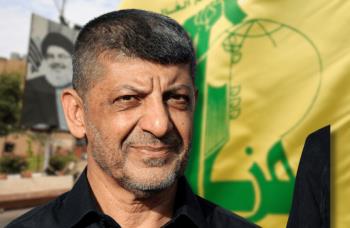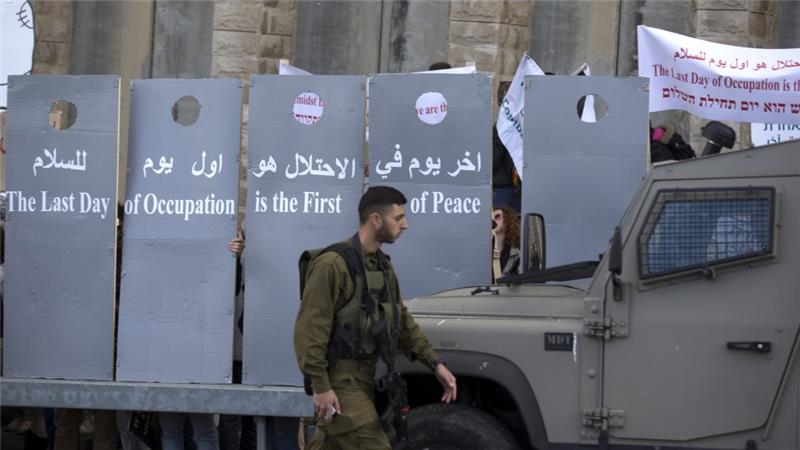Alwaght- Since 1948, the Israeli regime has been making news across the world as a state. However, reality superimposes the Israeli regime’s illegitimate existence and occupation of Palestinian land. This year, Tel Aviv continued with its occupation policies against Palestinians amid the inaction of the so-called international community, particularly the United States. In addition, some significant incidents have taken place in 2016.
- In January, Palestinians continued to carry out stabbing operations against Israelis as part of a wave of civil resistance against occupiers. In fact, the stabbings, as well as one ramming incident, sustained throughout the year as Palestinians in the West Bank and occupied al-Quds increasingly expressed their frustration.
- Between 23 February and 4 April, 20 Palestinians were killed by Israelis in the West Bank while 518 were injured.
- The Israeli regime appropriated large tracts of land in the occupied West Bank near the Dead Sea and the Palestinian city of Jericho mid-March. According to the Israeli Peace Now movement, which tracks and opposes Israeli settlement in territory captured in a 1967 war, the seizure of 579 acres (234 hectares) represented the largest land confiscation in the West Bank in recent years.
- Politically, Yisrael Beitenu- a secular party with a strong base of Russian-speaking Israelis which won six seats in the 2015 elections, formally joined the Knesset on 23 March.
- In June and July, the violence escalated leading to the killing of five Israelis and six Palestinians. Many more were wounded.
- Meanwhile in June, the Israeli regime and Turkey reached agreement to normalize ties to end a rift over the Israeli navy's killing of 10 Turkish pro-Palestinian activists who tried to sail to the blockaded Gaza Strip in 2010.
- In September, the United States pledged $38 billion to in military assistance for the Zionist regime.
The unprecedented security agreement with the Israelis was signed on September 14th, and is planned to be carried out over a period of 10 years. Once the current deal expires,
$3.8 billion a year will be given in budget year 2019.
Later that month, Shimon Peres, former prime minister and president of the Israeli regime died from a stroke. While he was hailed as a peacemaker in the Western world, his death also triggered an outbreak of condemnation of his dark history as a member of the founding generation of the occupying regime.
Also in September, Israeli Prime Minister Benjamin Netanyahu sued his own office and the Israeli attorney general against the backdrop of a laundry scandal. Netanyahu, citing a right to privacy, requested a Jerusalem court to overturn a decision to release his laundry bills and those of his family.
- In October, the Israelis recalled their ambassador to UNESCO for consultations after the U.N. culture body adopted a second resolution referring to the compound – which Jews claim to be the Temple Mount and which is revered by Muslims as the Haram al-Sharif (Noble Sanctuary) - only as a "Muslim holy site of worship".
- Last month, wildfires blazed across central and northern Israeli-occupied territories. As political leaders, especially Netanyahu, blamed arsonists for some of the fires, opponents of the occupation commented on the incident as being divine punishment.
Also in November, 500 additional housing units were proposed to be built on occupied Palestinian land. The proposal drew condemnation against the backdrop of the regime’s settlement expansion policy.
Another decision that violated Palestinians’ rights is the Israeli Ministerial Committee for Legislation’s approval of a bill that bans the adhan, the Muslim call to prayer. This triggered reaction on the part of Muslims and Palestinians. While Arab lawmaker Ahmed al-Tibi raised the adhan in the Knesset in protest to the bill, Muslims in al-Quds took to rooftops to make the call while churches raised the adhan in solidarity.
- The US election certainly does have a major role in Israeli internal and external affairs. Elected President Donald Trump has named David Friedman as his ambassador to Tel Aviv. Friedman is a pro-settler, anti-two-state solution and strongly supports appropriating Jerusalem (al-Quds) as the Israeli capital.
From targeting Palestinians’ freedoms and rights, to settlement expansion, to cultural appropriation, the Israeli regime continues to be an occupying force. Its legitimacy, or lack thereof, is an issue in the region that has been met with opposition, largely backed by a conviction that the only solution to this problem can be reached through all forms of resistance, including armed conflict.



























